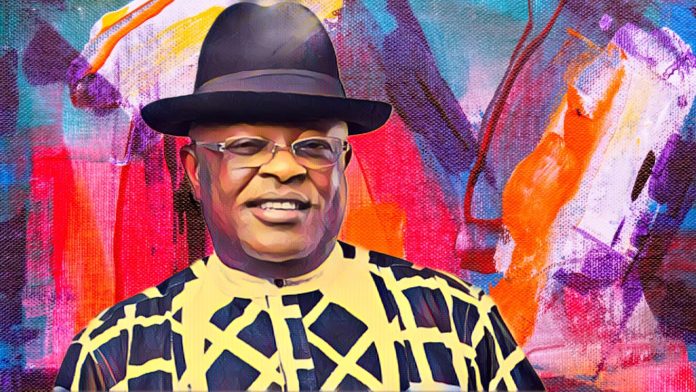Nigerian Works Minister David Umahi has dismissed criticism of the Lagos-Calabar Coastal Highway project, calling critics “unpatriotic.” The minister argued the project would significantly benefit the nation’s economy.
Umahi’s comments come in response to public concerns raised by some Nigerians, including politicians, regarding the project’s feasibility and funding.
EPC+F Funding Model Explained
Umahi, through his media aide, Orji Uchenna Orji, explained the project utilizes an EPC+F funding model. This financing mechanism involves contractors arranging project financing alongside engineering, procurement, and construction (EPC) activities.
“This type of funding essentially transfers risks to the contractor,” Orji said. “It requires a fixed price, fixed date for completion, and the contractor secures most of the funding.”
Orji emphasized that the government would only provide counterpart funding, highlighting the project’s minimal financial burden on the nation.
Focus on Economic Benefits
Umahi’s spokesperson further stressed the economic importance of the highway. When completed, the highway is expected to connect Nigeria’s north and south, fostering national economic growth and facilitating trade. Orji explained, “The Lagos-Calabar highway will create a major north-south artery, improving connectivity between the country’s economic hubs and unlocking new trade opportunities.”
He added, “This improved connectivity is expected to stimulate economic activity along the corridor, benefiting businesses and residents in those areas.”
Orji acknowledged concerns about project transparency. He assured the public that the EPC+F model promotes transparency, as the contractor is responsible for securing most of the funding.
“The contractor’s involvement in financing incentivizes them to complete the project efficiently and within budget,” Orji said. “This ensures the government gets value for money.”
Improvements to National Infrastructure
Orji highlighted the government’s broader efforts to improve Nigeria’s road infrastructure. He pointed to the 2023 supplementary budget allocating funds for repairs on over 260 roads nationwide and the 2024 budget prioritizing capital investment in critical roads across Nigeria’s six geopolitical zones.
“The Lagos-Calabar highway is part of a larger national infrastructure development plan,” Orji explained. “The government is committed to improving Nigeria’s road network to boost economic growth and create jobs.”
Orji commended Minister Umahi’s leadership in road construction and rehabilitation initiatives. He cited Umahi’s focus on project supervision, innovative contracting approaches like EPC+F and successful negotiation strategies.
“The minister has demonstrably improved our road infrastructure development roadmap,” Orji said. “Nigerians are already witnessing the quality and speed of road projects under the current administration.”
Criticism Dismissed as Political
Orji downplayed the public criticism, suggesting it stemmed from political motivations rather than genuine concerns.
“While true patriots applaud Mr. President’s efforts, some politicians prioritize criticism over a landmark project that will propel Nigeria towards economic leadership in Africa,” Orji concluded.
The Lagos-Calabar Coastal Highway project remains a topic of debate in Nigeria. The government touts its economic benefits, minimal financial risk, and transparency through EPC+F funding. However, some Nigerians express concerns about the project’s long-term viability, environmental impact, and potential for corruption.
The project’s success will depend on the government’s ability to ensure transparency, manage environmental concerns effectively, and hold contractors accountable for project completion within budget and timeframe. Only time will tell if the Lagos-Calabar Coastal Highway becomes a catalyst for economic growth or a monument to misplaced priorities.
Source: Vanguard



